Quadrilaterals and Triangles
Two angles are ___________ if their measures add up to 90 degrees.
Complementary.
Angle BAC is a right angle. What is the measure of angle CAD?
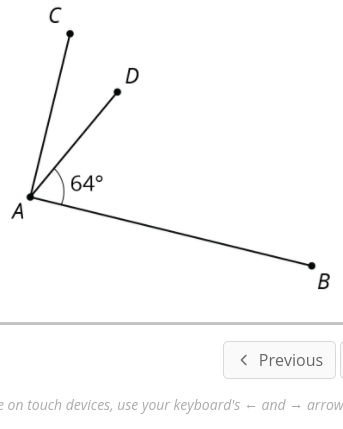
26 degrees (90-64=26)
True or False: w + 35 = 70
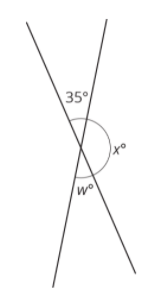
True
These two non-adjacent angles are called ___________ angles.
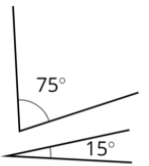
Complementary (add to 90 degrees).
What is the measurement of angle ACB?
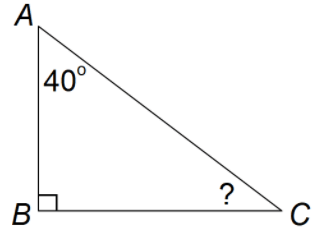
50 degrees (180 - 90 - 40 = 50)
A straight angle is an angle that forms a straight line. It measures _____ degrees.

180
Point O is on line RS. What is the measure of angle SOP?
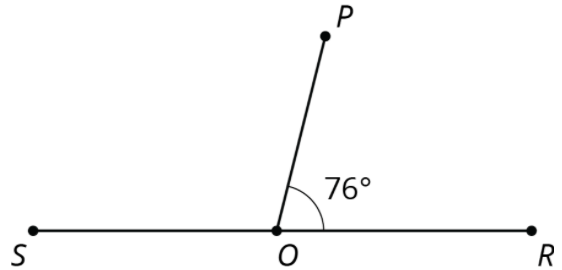
104 degrees (180-76=104)
True or False: The value of Angle A is 90 degrees.

False. Angle a is 45 degrees. (2a+90=180; 2a=90; a=45)
These two non-adjacent angles are called _____________ angles.
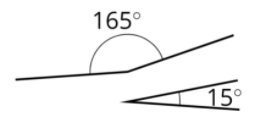
Supplementary (add to 180 degrees)
The angles in this parallelogram total ______ degrees.
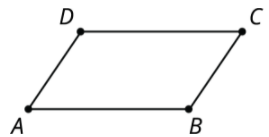
360
Two angles are ____________ if their measures add up to 180 degrees.
Supplementary
Angles BAE and DCF are supplementary. What is the measure of angle DCF?
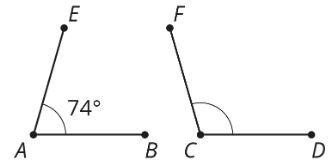
106 degrees (180-74=106)
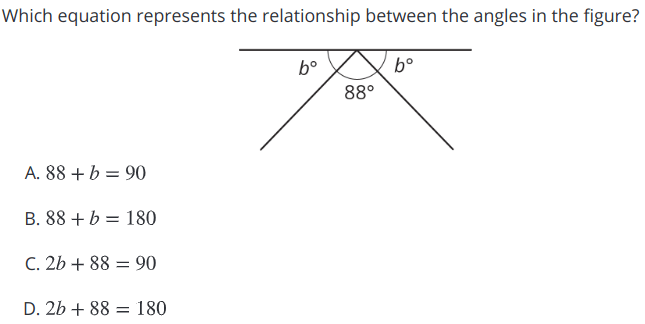
D. 2b + 88 = 180
What is the measurement of angle EBU?
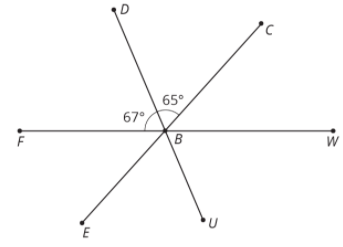
65 degrees (Angle CBD and EBU are vertical angles)
In this right triangle, one angle is 90 degrees. What is the total measurement of the other two angles?
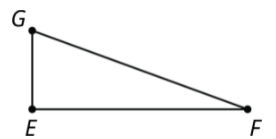
90 degrees (180-90=90)
Angles DAC and CAB are known as __________ angles.
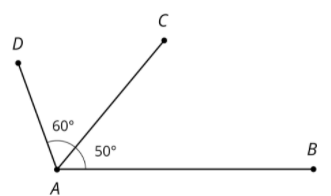
Adjacent (because they are next to each other, and share line segment AC and vertex A.
What is the measure of Angle g?
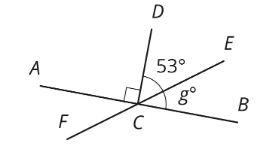
37 degrees (180-90-53=37 or 90-53=37)
Which equations represent the relationship between the measures of the angles in the figure?
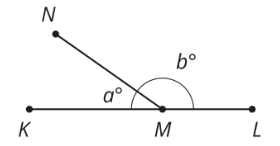
1. 180 - a = b
2. a + b = 180
3. a = 180 - b
1, 2, and 3
What is the measurement of angle EBW?
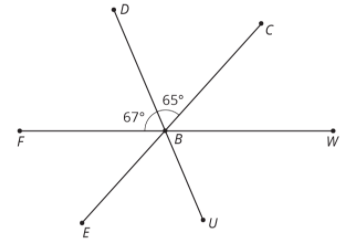
132 degrees (Angle CBF (132 degrees) and EBW are vertical angles)
In this figure, angles R and S are complementary. What is the measure of angle S?
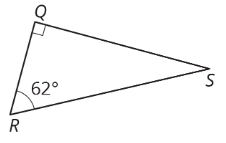
28 degrees (90-62=28)
________ angles are a pair of angles, formed by two intersecting lines, that are opposite each other. Their angle measures are equal.
Vertical
Find the value of x
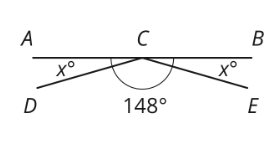
16 degrees (2x + 148 = 180; 2x = 32; x = 16)
Which equation represents the angle relationships below?
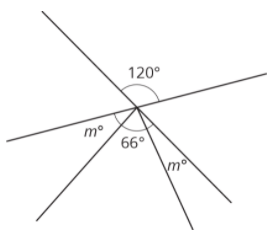
1. 2m + 66 = 180
2. 2m + 66 = 90
3. 2m + 66 = 120
3. 2m + 66 = 120
What is the measurement of angle D?
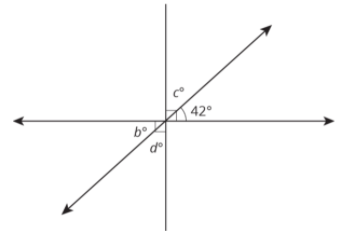
48 degrees (Angles C (48 degrees) and D are vertical angles)
Find the missing angle in the quadrilateral below.
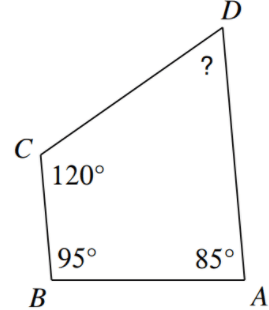
60 degrees (360 = 120 + 95 + 85 + x)